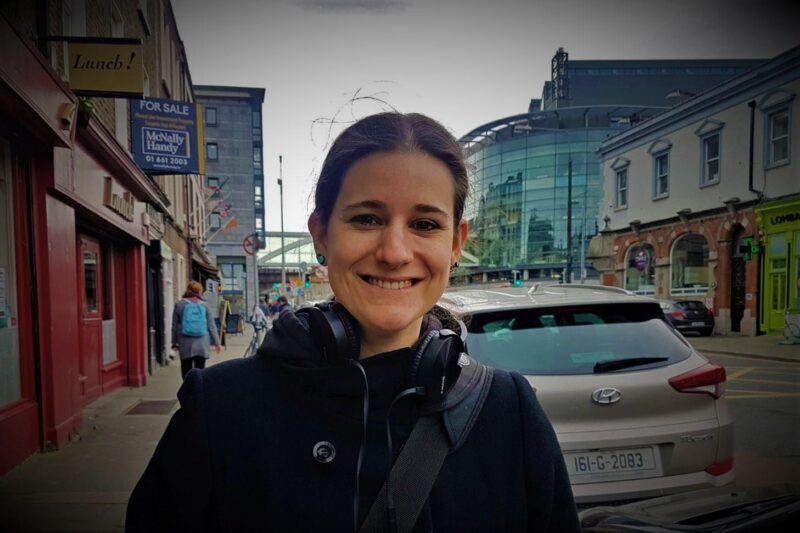Italian director Chiara Viale’s film The New Music tells the story of a young classical pianist who is diagnosed with young onset Parkinson’s disease. The film explores the various ways in which we deal with unexpected changes to life plans, and how each of us finds our own unique, nuanced method of coping and healing.
Speaking to The University Times, Viale explains the mindset of her young protagonist: “He’s in a phase where he’s trying to deny everything, thinking: ‘I’ll deal with this later.’” While preparing the film, Viale met “loads of people who were diagnosed [with young onset Parkinson’s disease] that went through this phase of thinking, ‘this can’t be me, could this be wrong?’”. The New Music explores the different stages of grief, particularly denial, in those who are unexpectedly diagnosed with life-changing conditions. Her film presents the idea that life does not always go to plan and that “you’re not going to be the person you thought you were going to be”.
Initially, Viale was inspired to create a film centred on a musician who could no longer pursue music. Her goal was to highlight how unexpected life changes can prompt personal reinvention. She was also struck by the fact that there was so little awareness for young onset Parkinson’s as an illness: she admits that she herself “didn’t even know it existed”. She combined this knowledge with the film’s initial premise in order to explore her themes whilst also raising awareness of a disease that affects many people.
Throughout filming she worked closely with representatives from Young Parkinson’s Ireland to make sure she was depicting the illness accurately, and all proceeds from The New Music will go to the charity. Even the musical backdrop for the film was chosen with the film’s purpose in mind, as many piano compositions featured in the film were composed by a pianist with Parkinson’s.
Music was very important to Viale while growing up and remains so today. She finds “creative inspiration” in it and also cites it as a mechanism to “help get through tough times”. In The New Music she juxtaposes the two contrasting styles: classical music and underground punk. Although she loves both, Viale notes the clash between the two styles: classical music is “very refined, and takes years and years of practice”, while punk embodies “the spirit of imperfection, where you can just take your instrument and go for it”. The latter is a prominent theme throughout the film. The message that Viale took from punk music was that you should have the courage to speak your truth and not be concerned with presenting yourself or your message as flawless. She says that this idea gave her the courage to put her scripts and her ideas forward.
The main thing that Viale hopes audiences will take away from the film is that “life doesn’t have to be perfect to be lived and to be enjoyed”. She also hopes that her film may help the isolation that people feel when experiencing physical and mental conditions. “I’m not making a film that’s telling people everything will be great and they’re going to magically heal from their situation”, Viale says. Instead, she says that she wanted to explore and show the different ways in which people cope with their issues, and how these people keep on going without focusing on a formulated “happy ending”.
The New Music is showing in the Irish Film Institute on January 29th at 6.30pm. The screening will be followed by a questions and answers session with Viale and Gerry Boyle from Young Parkinsons Ireland. The film has also been selected to screen as part of the Chicago Irish Film Festival at the end of February.
Correction: 21.45, January 28th, 2020
The print version of this article, published in today’s copy of The University Times, incorrectly spelled Chiara Viale’s second name. This has been amended for the online version of the piece.







